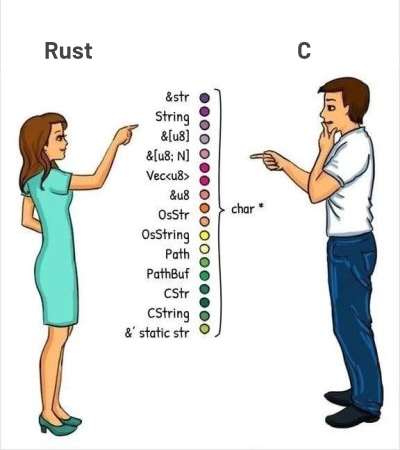this post was submitted on 25 Jan 2024
24 points (80.0% liked)
C Programming Language
993 readers
1 users here now
Welcome to the C community!
C is quirky, flawed, and an enormous success.
... When I read commentary about suggestions for where C should go, I often think back and give thanks that it wasn't developed under the advice of a worldwide crowd.
... The only way to learn a new programming language is by writing programs in it.
- irc: #c
🌐 https://en.cppreference.com/w/c
founded 1 year ago
MODERATORS
you are viewing a single comment's thread
view the rest of the comments
view the rest of the comments

You've missed the group that is most affected by software quality: end-users. Almost everyone in the world relies on computers in some way now, and bugs, especially security vulnerabilities, affect people who have no say in what languages people use to develop software.
Sounds good. How do I, the end-user of software, hold developers accountable for bugs? I guess I can switch from one buggy operating system to another, or from one buggy browser to another.
But also, do you honestly think that the choice of language does not impact software quality at all? Surely if you were forced to write software in a raw assembly, you'd find it more difficult to write a large and complex system correctly; right? But assembly is just another language; what makes C easier to use correctly? And if C is easier to write correctly than assembly, why would it be surprising that there are languages that are even easier to write correctly, especially after five decades of development in the extremely young field of computer science? Tools are important; your programming language (and compiler) is your first, most important, and most impactful tool as a developer.
How are you determining that? C, C++, Rust, Fortran, Ada, and D all compile down to machine code, with no garbage collector (D's is optional). So there's not really any theoretical reason why they shouldn't all perform roughly the same. And, in fact, this is largely supported by evidence:
greptype tools.grepitself is written in C and heavily optimized. I think it's fairly well known by now thatripgrep, written in Rust, is probably the fastest of these tools.may-minihttp,xitca-web, andntex) are all Rust projects. The fourth (h2o) is in C.[Side-note: no one is "suppressing" C. I'm also not convinced anyone thinks C is "useless".]
Thank you for answer. You helped me.
Why did you forgot Nim? Is it a player?
Oh, Nim is possibly even a better example because it is "transpiled" rather than compiled, meaning the compiler actually generates C or C++ code. You can then compile that with whatever compiler you want. However, I don't know of any major projects in Nim to compare against ones in C, C++, Rust, etc.
Edit: and Zig should be extremely efficient as well.
https://github.com/ringabout/awesome-nim